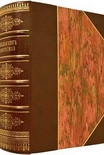Myths and Legends of China by E. Werner (free ebook reader for iphone TXT) 📗

- Author: E. Werner
Book online «Myths and Legends of China by E. Werner (free ebook reader for iphone TXT) 📗». Author E. Werner
Before leaving he acknowledged to the King that he had no great confidence in his own powers, and suggested that he should be allowed to take with him Chou-pien and Tzŭ-hua as commissioners of justice and finance. The King gave his consent, and issued the necessary instructions. The day of departure having arrived, both the King and the Queen came to see Ch’un-yü and his wife off, and to Ch’un-yü the King said: “The province of Nan-k’o is rich and fertile; and the inhabitants are brave and prosperous; it is by kindness that you must rule them.” To her daughter the Queen said: “Your husband is violent and fond of wine. The duty of a wife is to be kind and submissive. Act well toward him, and I shall have no anxiety. Nan-k’o, it is true, is not very far—only one day’s journey; still, in parting from you my tears will flow.” Ch’un-yü and his bride waved a farewell, and were whirled away toward their destination, reaching Nan-k’o the same evening.
Once settled in the place, Ch’un-yü set himself to become thoroughly acquainted with the manners and customs of the people, and to relieve distress. To Chou-pien and Page 416Tzŭ-hua he confided all questions of administration, and in the course of twenty years a great improvement was to be noticed in the affairs of the province. The people showed their appreciation by erecting a monument to his honour, while the King conferred upon him an estate and the dignity of a title, and in recognition of their services promoted Chou-pien and Tzŭ-hua to very high posts. Ch’un-yü’s children also shared their father’s rewards; the two sons were given office, while the two daughters were betrothed to members of the royal family. There remained nothing which could add to his fame and greatness.
He meets with Disasters
About this period the state of T’an-lo made an incursion on the province of Nan-k’o. The King at once commanded that Chou-pien should proceed at the head of 30,000 men to repel the enemy. Chou-pien, full of confidence, attacked the foe, but sustained a disastrous defeat, and, barely escaping with his life, returned to the capital, leaving the invaders to plunder the country and retire. Ch’un-yü threw Chou-pien into prison, and asked the King what punishment should be visited upon him. His Majesty granted Chou-pien his pardon; but that same month he died of disease.
A few days later Ch’un-yü’s wife also fell ill and died, whereupon he begged permission to resign his post and return to Court with his wife’s remains. This request was granted, and Tzŭ-hua was appointed in his stead. As Ch’un-yü, sad and dejected, was leaving the city with the funeral cortège, he found the road lined with people giving loud expression to their grief, and almost ready to prevent his taking his departure. Page 417
He returns Home
As he neared the capital the King and Queen, dressed in mourning, were awaiting the bier in tears. The Princess, after a posthumous title had been conferred upon her, was buried with great magnificence a few miles to the east of the city, while Ch’un-yü remained in the capital, living in such state, and gaining so much influence, that he excited the King’s jealousy; and when it was foretold, by means of signs in the heavens, that ruin threatened the kingdom, that its inhabitants would be swept away, and that this would be the work of an alien, the prophecy seemed to point to ambitious designs on the part of Ch’un-yü, and means were taken to keep him under restraint.
Ch’un-yü, conscious that he had faithfully filled a high office for many years, felt greatly grieved by these calumnies—a result which the King could not avoid noticing. He accordingly sent for Ch’un-yü, and said: “For more than twenty years we have been connexions, although my poor daughter, unfortunately, has not been spared to be a companion to you in old age. Her mother is now taking care of her children; your own home you have not seen for many years; return to see your friends; your children will be looked after, and in three years you will see them again.” “Is not this my home? Whither else am I to go?” was Ch’un-yü’s reply. “My friend,” the King said laughingly, “you are a human being; you don’t belong to this place.” At these words Ch’un-yü seemed to fall into a deep swoon, and he remained unconscious for some time, after which he began to recall some glimpses of the distant past. With tears in his eyes he begged that he might be allowed to return to his home, and, saying farewell, he departed. Page 418
Outside the palace he found the same two officials in purple clothes who had led the way so many years ago. A conveyance was also there, but this time it was a mere bullock-cart, with no outriders. He took the same road as before, and noticed the same hills and streams. The two officials were by no means imposing this time, and when he asked how far was his destination they continued to hum and whistle and paid no attention to him. At last they passed through an opening, and he recognized his own village, precisely as he had left it. The two officials desired him to get down and walk





Comments (0)